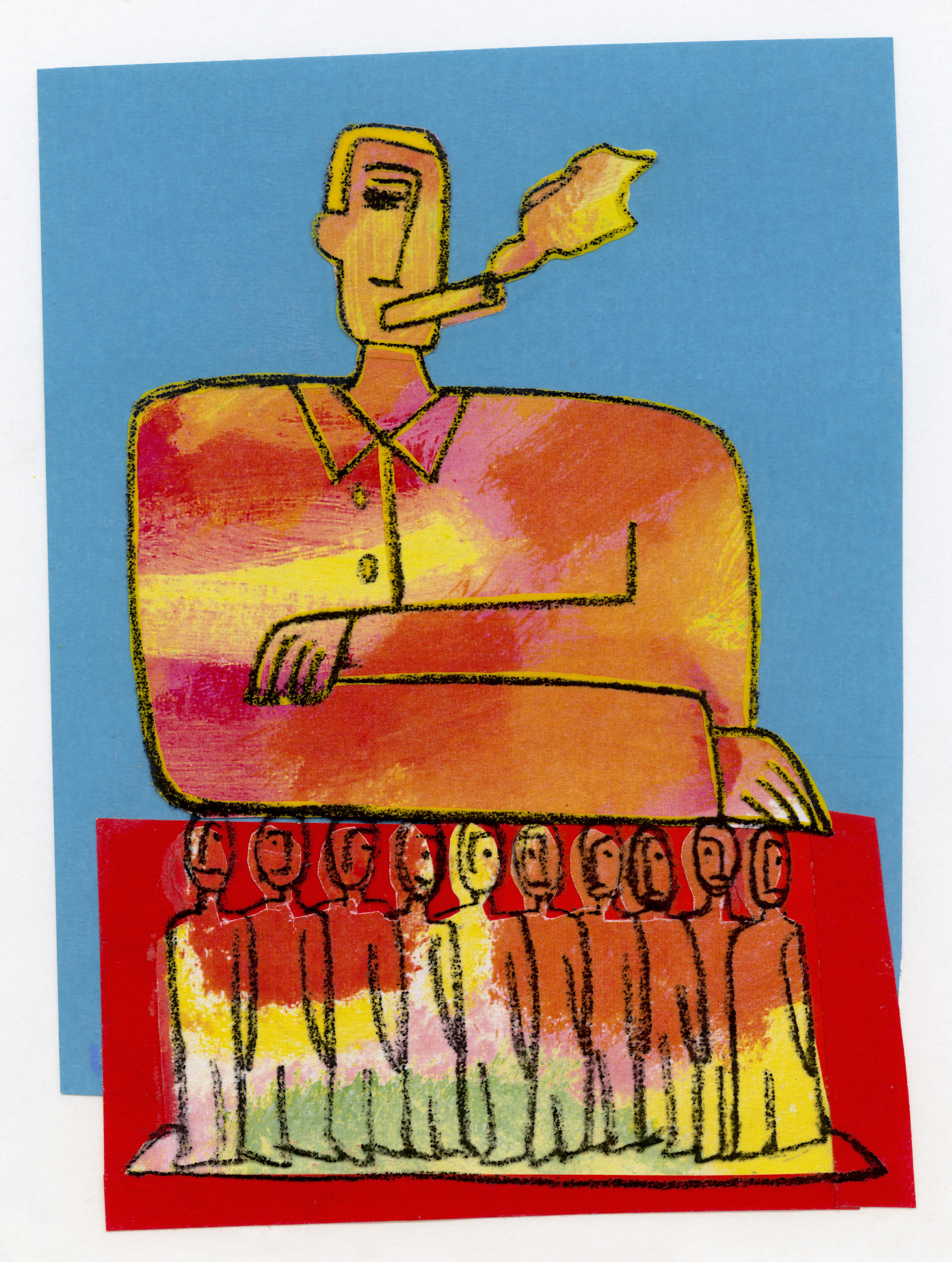If welfare recipients are going to be drug-tested, then so should Jamie Dimon
The rich get way more welfare than the poor


A free daily email with the biggest news stories of the day – and the best features from TheWeek.com
You are now subscribed
Your newsletter sign-up was successful
The fresh new trend in conservative policymaking amounts to what seems like an exercise in seething resentment: using the letter of the law to sharply restrict the kinds of food and activities that can be enjoyed by poor people dependent on government aid.
In Missouri, lawmakers are discussing banning food stamp recipients from buying cookies, chips, seafood, and steak. In Kansas, they want to ban those on welfare from using government funds to see movies, visit swimming pools, or go on cruises. Meanwhile, in Wisconsin, Gov. Scott Walker wants welfare recipients to pass drug tests.
Not only is this policy utterly wretched on the merits, but it's also completely hypocritical. Rich people, who get their own kind of welfare, never get the green-eyeshade treatment — and their welfare costs way, way more than food stamps. If we're going to go through the accounts of anyone receiving government benefits with a fine-toothed comb, then we should at least be consistent about it.
The Week
Escape your echo chamber. Get the facts behind the news, plus analysis from multiple perspectives.

Sign up for The Week's Free Newsletters
From our morning news briefing to a weekly Good News Newsletter, get the best of The Week delivered directly to your inbox.
From our morning news briefing to a weekly Good News Newsletter, get the best of The Week delivered directly to your inbox.
Here's the ostensible justification, courtesy of Chelsi Henry (TANF refers to Temporary Assistance for Needy Families, while SNAP, better known as food stamps, refers to the Supplement Nutrition Assistance Program):
If taxpayers' hard-earned money pays for those in need to receive TANF or SNAP benefits, then it's reasonable for their elected representatives to restrict what those benefits are used to buy... [I]t's not fair for people receiving benefits to spend them on tattoos or jewelry — if you've got enough money to spend on those items, then you should be able to cover your basic living expenses. [The Washington Post]
This is ridiculous right out of the gate — you already can't spend food stamp money on jewelry, and TANF is essentially dead. But more problematically, this view says that food stamps should be used only to cover the bare minimum of existence. This will serve to increase the disconnect between poor people and regular society. As Matt Bruenig notes, chips and cookies and the like facilitate events like "having friends over," and so allowing them only the most basic items (and, presumably, eventually nothing but Soylent) cuts food stamp families out of normal social life.
In a sense, this is actually the whole point. The idea that untrammeled capitalism automatically produces lots of poverty makes conservatives uncomfortable, and they would prefer to assign blame to poor people for their low incomes. The strategy is twofold: harshly judge the poor for buying "non-necessary" food, and create the false impression that there is an epidemic of cruise ship tours paid out of the $464 that a family of four on average receives every month in food stamp benefits.
Furthermore, welfare payments are not the only government subsidies that exist. On the contrary, our major welfare programs are buried in the tax code, which makes it much easier to direct the vast majority of the benefits to the rich. Food stamps cost $76 billion yearly, but retirement exclusions cost $91 billion (14 percent of which goes to the top 1 percent), the mortgage interest deduction costs $71 billion (15 percent to the top 1 percent), while the special rate for capital gains and dividends costs $97 billion (68 percent to the top 1 percent).
A free daily email with the biggest news stories of the day – and the best features from TheWeek.com
Worst of all is the carried interest loophole, which allows ultra-rich hedge fund managers to label their regular old income as capital gains, costing the taxpayer $11 billion to $13 billion a year, all of it almost certainly going to the top 1 percent.
Make no mistake, this is welfare spending. But for some reason there isn't a groundswell of enthusiasm for making sure that government money isn't being spent on cocaine and prostitutes by the richest financial titans. And such a concern would be justified! Wall Street is notorious for its vast cocaine intake. Former madams testify that buying escorts was a routine part of finance business.
If we really cared about how our tax dollars are spent, we'd set up a massive surveillance apparatus to watch over all homeowners, hedge fund managers, and even soldiers, to make certain these recipients of government largesse aren't spending any of it on drugs or taking their families to the swimming pool. That this isn't the case, that only handouts to the poor are so scrutinized, is quite telling.
One lesson that can be drawn from this is that universal benefits are good. Ronald Reagan straight-up lied about millions of welfare queens buying T-bone steaks and driving expensive cars as part of a long-term conservative strategy to cut benefits and make budget headroom for tax cuts for the rich. But if benefits are spread equally throughout the population, then they become much harder to cut. Conservatives do not dare to attack Social Security like they do food stamps, because the pool of beneficiaries is very large and politically mobilized.
But at the very least, if we're going to make food stamp recipients pass a drug test, then Jamie Dimon should have to do the same.
Ryan Cooper is a national correspondent at TheWeek.com. His work has appeared in the Washington Monthly, The New Republic, and the Washington Post.
